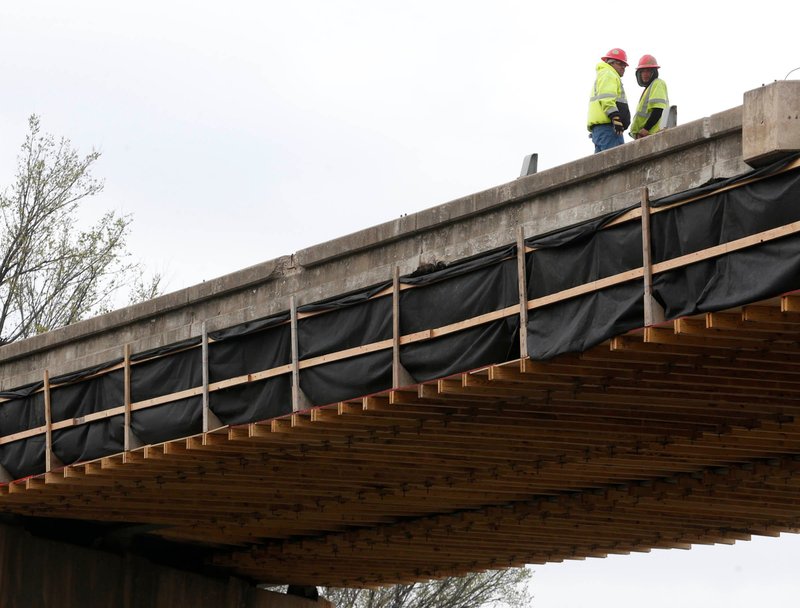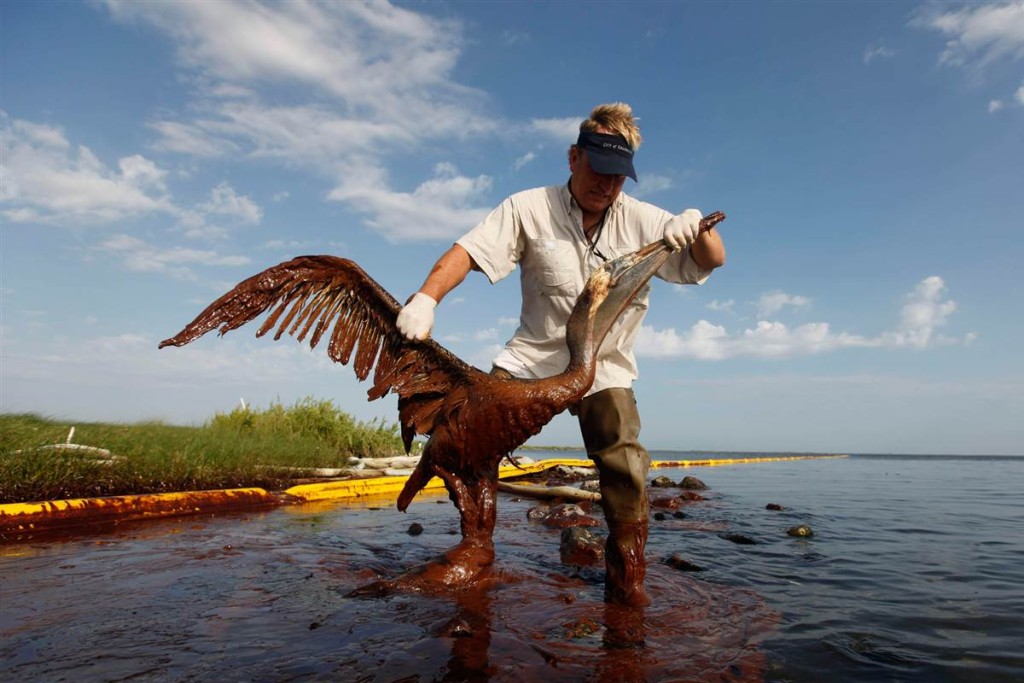Trump-era transportation project more focused on rural areas including Alabama

Forget about bike-share stations in Chicago or pedestrian walkways in Oakland. That’s so Obama-era. In the Trump administration, a popular $500 million transportation grant program is focused more on projects in rural areas that turned out for Donald Trump in the 2016 election. That means more road and rail projects in GOP strongholds such as Idaho, North Dakota, and Oklahoma, and fewer “greenways,” ″complete streets” and bike lanes. The latest round of these grants has nothing for New York City, Los Angeles or Chicago. Money in those Democratic heavy states went instead to projects in Trump-friendly regions: repainting a bridge in New York’s North Country, contributing to a highway project in Modesto, California, and upgrading an interstate highway in southern Illinois. It’s a refocusing from the priorities of the previous administration, which gave most of these TIGER (Transportation Investment Generating Economic Recovery) grants to urban areas represented by President Barack Obama’s Democratic allies on Capitol Hill. “More than 64 percent of this round of TIGER funding was awarded to rural projects, a historic number that demonstrates this Administration’s commitment to supporting the country’s rural communities,” the Transportation Department said in a release announcing the grants last month. “I was very pleased,” said Sen. Susan Collins, R-Maine, when asked about the focus on rural areas. Maine won $10.8 million to help repair three rural bridges on routes critical to the state’s timber industry. The program was established under Obama’s 2009 economic recovery bill. The grants, distributed at the discretion of the administration, are just a small fraction of the overall federal transportation dollars when compared with more than $50 billion distributed annually to states by formula from the highway trust fund. Trump has twice targeted the grant program for elimination, only to sign a huge spending bill into law last month that tripled its budget to $1.5 billion. Questions arose during the Obama administration about political favoritism when grants consistently went in greater numbers to congressional districts represented by Democrats. For example, in 2013, about two-thirds of TIGER money was awarded to such districts. One of those grants went to help Florida International University construct a pedestrian bridge over a busy road. The structure collapsed last month, killing six people. Grants are awarded according to a competitive process that analyzes criteria such as economic benefits, safety, state of disrepair, and the environmental benefits of projects. The Government Accountability Office looked into the program a few years ago at the request of then-Sen. David Vitter, R-La., and found that projects with lower grades often won out over top-rated projects. Of the 41 grants announced by the Trump administration, 25 totaling $271 million were awarded to projects in congressional districts represented by Republicans. Districts represented by Democrats garnered 14 projects and $190 million. Two grants worth $25 million went to projects spanning district lines. That’s a reversal from the Obama administration, which in its last year in office provided just $102 million in grants to rural areas. That was just above the 20 percent minimum required by the law that established the program. The Obama administration funded numerous urban projects centered on pedestrian walkways and bike trails. More than one-third of Obama’s final round of grants featured bike-friendly projects. A 2016 grant, for instance, helped pay for a “multi-modal greenway” in Lexington, Kentucky, to integrate a network of bike and pedestrian trails. The Trump grants contain just a handful of such projects, including a pedestrian and bike trail along the Schuylkill River in Philadelphia and preservation of a historic railroad pedestrian bridge in Mill City, Oregon. The Trump administration is focused more on economic development projects such as port upgrades in Alabama, Baltimore and New Orleans. Some $25 million would help Arizona ease congestion from a busy U.S.-Mexico port of entry in Nogales. Other projects include reopening an inactive freight rail line in Idaho, easing traffic in Big Sky, a tourist destination in Montana, and contributing to a highway bypass around Lincoln, Nebraska. A port project in Alabama would build a “roll on/roll off” facility that would serve several automobile manufacturing plants. Fort Smith, Arkansas, would benefit from repair projects for three deteriorating freight rail bridges. An additional $10 million would replace rail lines servicing farmers and energy producers in southern Illinois. Republished with the permission of the Associated Press.
Republicans’ tough Senate map gets another twist

Republicans’ plans to defend their Senate majority in 2016 just got a bit more complicated. GOP Sen. David Vitter‘s loss in Louisiana’s governor’s race over the weekend, and his decision to leave the Senate next year rather than seek re-election, creates an open seat that Republicans will have to defend. It’s a deep-red Southern state and the GOP will be heavily favored, but Democrats hope they might have a shot, especially with a newly elected Democratic governor, John Bel Edwards, as an unanticipated asset. The Louisiana race is the latest wrinkle as Republicans face what’s already a tough Senate map next year. They are defending 24 seats, compared to 10 for Democrats, and seven of those GOP seats are in states President Barack Obama won in 2012. Democrats are sounding increasingly confident they will pick up the seats needed to win back the Senate control they lost just last year. They need to net four seats if they hang onto the White House, since the vice president casts tie-breaking votes in the Senate; or five seats if Republicans win the presidency. But Republicans insist they will keep Louisiana safely in their column and keep their majority, too. They point to strong incumbents in battleground states like Pennsylvania, New Hampshire and Ohio, although Illinois and Wisconsin may be tougher for them to hold. And although there’s talk of a primary challenge against New Hampshire GOP Sen. Kelly Ayotte, who will face a tough general election against Democratic Gov. Maggie Hassan, Republicans boast of steering clear of disastrous primaries that plagued earlier election cycles, most notably 2010 and 2012, when tea party Republicans with odd views on rape and even witchcraft emerged from primaries only to lose the general election. “None of our members have put their foot in their mouth but never underestimate us to screw it up because we have before,” Ward Baker, executive director of the National Republican Senatorial Committee, said in an interview Monday. “As of today I feel pretty good, I don’t think you could point and say in our top couple races ‘man they’ve really screwed up here’, or ‘this person’s really killed themselves,’” Baker said. “We’re still here fighting and that’s more than people thought they were going to think.” Strategists of both parties make a few points about the Senate map: —In Louisiana, Vitter’s loss in the gubernatorial race amid accusations of prostitution could have turned into an even bigger disaster for Republicans had he decided to run for re-election to the Senate. Democrats would have jumped at challenging such a damaged incumbent. Yet Vitter’s departure also creates an open seat that Republicans will now have to defend, with several candidates sounding eager to run. On the Democratic side, New Orleans Mayor Mitch Landrieu is most often mentioned and Democrats see an outside chance there, arguing that Republicans will at least have to work for it. “Republicans now have another open seat to defend and it appears as though there will be a rush of candidates on the Republican side who will be battling one another,” said Sadie Weiner, communications director for the Democratic Senatorial Campaign Committee. —As Ayotte positions herself for a general election in independent-minded New Hampshire she has broken with her party on a series of issues, including backing Obama rules on power plant emissions. That’s upset some conservatives in New Hampshire who are now talking about a primary challenge. That could significantly complicate Ayotte’s campaign, though national Republicans play down the threat. Indeed Republicans argue that Democrats are the ones with problematic primaries, as their chosen candidates contend with vigorous challenges from the left in states including Florida, Pennsylvania, Ohio and Illinois. “We have a hell of a lot less problems with primaries than they do at this stage,” said Josh Holmes, a Republican strategist and former chief of staff to Senate Majority Leader Mitch McConnell, R-Ky. —With Hillary Rodham Clinton likely to emerge as the Democratic presidential nominee, it’s going to matter, a lot, whom the Republicans select as their presidential candidate. Republicans dread Donald Trump or Texas Sen. Ted Cruz and sound most excited about Florida Sen. Marco Rubio with his forward-looking message and prospect for generational change. —And, no matter what happens in 2016, it could all be turned upside down again two years later in 2018, when Democrats will be the ones defending vulnerable incumbents in competitive states. That’s partly why Democrats are hoping for as big a margin of victory as possible, including pressing into less-winnable states like Missouri and Arkansas. “Those states are difficult and Democrats oftentimes find themselves on the wrong side of history in those states,” said Matt Canter, a strategist formerly with the Democratic Senatorial Campaign Committee. “But it’s not insurmountable and politics is filled with surprises.” Republished with permission of The Associated Press.
Congressional bill moves to end “loophole” in effort to put American citizens ahead of illegal immigrants for in-state college tuition

Two Alabama congressmen joined an effort to prevent illegal aliens from taking advantage of in-state college tuition rates as original cosponsors of newly filed legislation. U.S. Congressman Mo Brooks and Congressman Mike Rogers joined Paul Gosar (R-AZ), a steadfast champion against illegal immigration on his bill. Gosar issued a statement Friday afternoon after introducing the House companion to Louisiana Senator David Vitter‘s (R-LA) legislation that would prevent illegal aliens, not in lawful immigration status, from receiving in-state college tuition benefits. Despite federal policy prohibiting states from awarding post-secondary education benefits to illegal immigrants on the basis of residency, currently, at least 19 states have exploited a loophole in the law by allowing children who were illegally brought to the country by their parents — also called Dreamers — to have access to in-state tuition and grants. States are sidestepping the law by offering alternative criteria — such as graduation from an in-state high school — as the prohibition only applies if the state uses residency as the eligibility requirement. Eight states have taken a step further by allowing undocumented students to qualify for state-based financial aid. “It is unthinkable that some states are circumventing federal law to allow illegal immigrants to receive in-state tuition, while other legal American citizens, playing by the rules, have to pay out-of-state tuition to attend public universities,” Gosar said of the growing problem. “With a stagnant economy, American students are facing enough challenges upon graduating from college and shouldn’t bear more financial burdens as a result of loopholes crafted by attorneys that put illegal aliens not in lawful immigration status ahead of U.S. citizens.” Endorsed by the Federation for American Immigration Reform (FAIR) and NumbersUSA, Gosar’s bill H.R. 3566 and Vitter’s bill S.60, would close the “loophole” in question. The legislation states “an alien who is not lawfully present in the United States shall not be eligible for any postsecondary education benefit unless every citizen and national of the United States is eligible to receive such a benefit (in no less an amount, duration, and scope).” This legislation is an answer to America’s sluggish employment numbers, especially those of millennials. “If you look at the numbers starting in 2009, we’ve been in the longest sustained period of unemployment since the Bureau of Labor Statistics began collecting their data following World War II,” says David Pasch, a spokesman for Generation Opportunity to Newsweek in June. Senator Vitter agrees. “Some of our nation’s highest unemployment rates are among recent college graduates, which is certainly why we should be supporting policies that provide American students with the opportunity to go to college and compete for good jobs,” Vitter said. “American students should always come first, and it’s unfortunate that so many states are blatantly disregarding the spirit of existing immigration law, which could end up putting illegal immigrants ahead of American citizens.”
Bill would open more of Gulf to oil and gas drilling

U.S. Sens. Thad Cochran and Roger Wicker of Mississippi are supporting legislation to expand energy exploration in the Gulf of Mexico. The Republican lawmakers are co-sponsors of a bill that will also provide additional revenue for Mississippi, Louisiana, Alabama and Texas. The legislation, introduced by U.S. Sen. Bill Cassidy, a Louisiana Republican, would amend a 2006 law to open parts of the Outer Continental Shelf for oil and gas exploration. It would redefine President Barack Obama‘s Eastern Gulf of Mexico drilling moratoria to open access to energy resources in areas 50 miles from the Florida coastline. Cochran and Wicker say the legislation also raises the revenue sharing cap to $700 million annually from the current $500 million, allowing the four coastal states greater say in the use of their offshore drilling revenues. “Offshore energy exploration is important to boosting the Gulf Coast’s overall economy,” Wicker said in a news release. “America thrives when our Gulf Coast thrives. This bill would provide precisely what Mississippi needs to prosper — an increase in jobs, revenue, and use of our natural resources.” Cochran said Mississippi’s energy industry is diversified and growing, making it important for job creation and meeting national energy goals. “Our energy policies should be geared toward greater U.S. energy and economic security, and that means responsibly maximizing our own energy resources. This legislation would move us in that direction for the benefit of our nation and Mississippi,” he said. Cochran said a 2014 study by Quest Offshore estimates that developing oil and gas operations in the eastern Gulf of Mexico could, by 2035, produce nearly 1 million barrels of oil equivalent per day and contribute more than $18 billion per year to the U.S. economy. Republican U.S. Sens. David Vitter of Louisiana and John Cornyn of Texas are also co-sponsors of the legislation. Republished with permission from The Associated Press.

